TV THOUGHTS: Rumsfeld extends battlefield to media: Jamil Yusuf focuses on crime
I find this very interesting that four days before the arrival of President George W Bush in Islamabad, on a visit that has generated much discussion, and dissent, there should appear in some Pakistani newspapers a short, but thematically strong article by the US Secretary of Defence, Donald Rumsfeld. And what was the article about: It was about the "Media war on terror".
It makes useful reading. One newspaper highlighted this part of the article: "After the earthquake in Pakistan, a public affairs team was deployed in the disaster area with our military forces.
They worked to help focus media attention on America's commitment to help the Pakistani people. Surveys by private groups before and after the earthquake suggest. That attitudes in Pakistan regarding the US changed dramatically because of this".
And this is the way in which the eminently readable article ends and emphasises that "we are fighting a war in which the survival of our way of life is at stake.
And the centre of gravity of that struggle is not just the battlefield. It is a test of wills and it will be won or lost in the court of global public opinion. While the enemy is skilful at manipulating the media and using the tools of communication to its advantage, we have an advantage as well: truth is on our side and ultimately, truth wins out."
I wish I could reproduce the entire article, which makes very valuable reading, not just as a point of view of the West, or the Americans who are leading the war against terror, but also enables one to appreciate somewhat the way in which TV channels are operating in this country, and in such societies. And more channels are coming.
Donald Rumsfeld says that "Today we are fighting the first war in the era of e-mail, blogs, blackberries, instant messaging, digital cameras, the Internet, mobile phones, talk radio, and 24 hour news. In Tunisia, the largest newspaper has a circulation of roughly 50,000 in a country of 10 million people. But even in the poorest neighbourhoods, you see satellite dishes on nearly every balcony or rooftop."
There is much to contemplate in what the US Defence Secretary says when he observes: "Regrettably, many of the news channels, being watched through these dishes are hostile to the West. Media outlets in many parts of the world often serve only to inflame and distort rather than to explain and inform.
While al Qaeda and extremist movements have used this forum for many years, further poisoning the Muslim public's view of the West, we in the West have barely begun to compete." He recommends that "free governments must make communications planning a central component of every aspect of this struggle.
Indeed, the longer it takes to put a strategic communications framework into place, the more vacuum will be filled by the enemy."
Indeed the media is very much part of the war against terror that is being fought the world over. And of course it is imperative to try and comprehend when the media is doing that here.
I am glad I was able to hear Jamil Yusuf on Monday night, which was the result of the channel surfing I was doing at that time. He was appearing in an interview in the PTV programme called 'Rising Pakistan'. The interviewer: Tauseeq Haidar. Fortunately for viewers he didn't try and either monopolise and spoil the flow of thought and communication of the seasoned Jamil Yusuf, known to Karachi for a decade and a half for the excellent work that he did as the founder chief of the now well organised and much needed Citizens Police Liaison Committee.
Jamil Yusuf is so relevant and so practical when it comes to issues like crime, safety, security in the context of the home, the office, the street; infact it is society that he talks about, and underlines that in a world of haves and have-nots it is impossible to be able to control crime. He said in that PTV interview that it should be accepted that crime will stay, and hence people should always take security measures, which means keep people, (read strangers) away from the home.
Access to one's home should be kept at a minimum in this day and age, he added. Repeat telecasts at night focused on the dangerous increase in street crime, especially car snatching, and cell phone snatching, as well as kidnapping for ransom. Jamil Yusuf kept on emphasizing that it was the citizen's responsibility to be smart, and well prepared in a society where there are growing challenges.
He emphasised the need for access to justice, and in the absence of justice, it was the police that could play a strategic, pivotal role to ensure that crime was kept to a minimum. He felt that if the police performance could improve in this society, it would lead to a drastic decline in the pressure of cases in the courts.
It was inevitable that the dimension of the police being poorly paid, (linked to corruption therefore) be raised, and he narrated details of how the Highway Police for the Lahore-Islamabad motorway was created. He disclosed that initially the manpower deputed by the provinces for this Highway Police was poor in quality. Such was the reputation of traffic police. But the police chief who was entrusted with the job raised the salaries to such an extent that he was able to make the very same men honest, efficient and reliable.
Jamil said that it was demonstrated that improving pay scales would have a positive impact on performance. There were many points that Jamil Yusuf mentioned, which would definitely be of value to ordinary people, all over the country.
Things that related to the use of the mobile phone, for instance. And how it is being used in the country, by young people, and nobody seems to realise really that this is an expensive gadget. From all that he said it was evident that cell phone snatching was almost inevitable, unavoidable.
Jamil Yusuf who has been awarded Sitara-e-Shujaat for his contribution as the chief of the CPLC in Karachi, was a rich theme for a television interview, and its potential was grossly under utilised by the producer and interviewer.
The programme described him as a businessman, which was not the reason why he was being interviewed. Apparently PTV producers had not done their home-work, and little did the interviewer to realise he was not interviewing a glamorous individual from the show biz world. In a way it was an opportunity that was wasted.
If it wasn't for him, for he pursued the subject seriously, the programme would have been a flippant exercise. PTV's producers have to realise the changes that are taking place in the urban centres of the country. And in this crime is a major dimension of the urbanisation that is taking place.
Two private channels, Geo and ARYOne World have weekly programmes on crime and criminals, which though not enough, reflect the change that is coming about, gradually. Tauseeq Haidar asked Jamil Yusuf about the music he liked. He appeared surprised at this question, looked uneasy, and then almost reluctantly answered that Mehdi Hassan and Adnan Sami were his favourites.
But somehow music and crime don't harmonise! Finally, there were many important points that the former CPLC chief raised, and it wouldn't be a bad idea if people like him were called in regularly to caution and advise citizens on how to be prepared for varied emergencies that our urban centres are creating, or find themselves in. It is not enough for PTV to be having fun and games, in its effort to create a soft image for Pakistan. The hard realities are bitter, and hard hitting.
Quite obviously and understandably Shaikh Rashid Ahmed, the Federal Minister for Information and Broadcasting, is often being quoted by TV channels, on a variety of issues, as he is the government spokesman. And he is outspoken, never at a loss for words. A PPI news report, datelined Islamabad, says that he addressed the induction course for television producers on "Basics of TV news and current affairs production." He underlined that the media enjoyed unprecedented freedom in the country and was free to provide information and entertainment to the people.
He told the young producers that media people can guide the public to differentiate between right and wrong, and to follow the right path. And he added that there was a need for the media to be alert and vigilant in the days ahead.
He was quoted in another news report as saying that "dutiful and vigilant approach is a must for any media person, especially those who report for the electronic media, particularly in the critical junctures". It is said that sixty new producers have been inducted into the news and current affairs sections of the state owned and managed television organisation. So even PTV is growing.
A Reuters story from Nairobi says that masked police armed with automatic rifles forced a Nairobi TV station off the air, and raided its sister newspaper, Standard, provoking outrage among Kenyans and Western nations.
And thousands of newspapers were burned at the Standard printing press during the operation, which was described as the most aggressive assault on a mainstream media house since Kenya's independence in 1963. And why did this happen? It was reported that the raid, came days after police arrested three Standard journalists over a week-end story saying that Kibaki secretly met rival Kalonzo Musyoka to discuss bringing him back to the Cabinet.
The raid shocked the Kenyans and a statement from 28 Western embassies called the raids an "unprecedented attack on the freedom of the media in Kenya" the Chief Executive of the Standard group, Tom Mshindi, which is the second biggest media house in Kenya, protested to say that "the extra judicial settling of scores has no place in a country which believes in rule of law".
And returning the focus to the local channels, some of the major themes were President George W Bush's visit to Islamabad, the impact and the outcome of the visit, the new developments in the Afghan Pakistan relationship, the suicide bombing near the US Consulate General in Karachi, the Senate elections, the basant kite flying deaths, and of course Women's day. But I have a feeling that in all this the entertainment programmes have been watched with greater enthusiasm. The political heat may have been too much to take on.















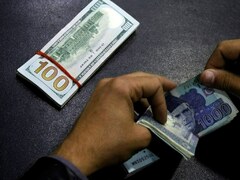
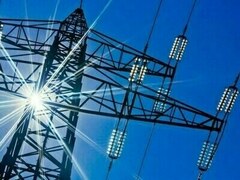
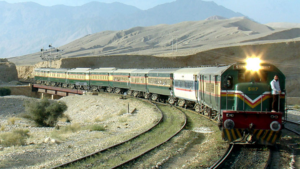

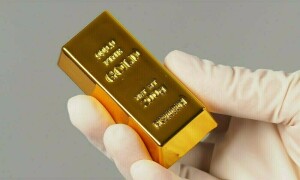
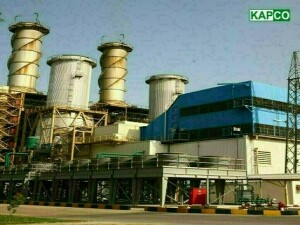

Comments
Comments are closed.